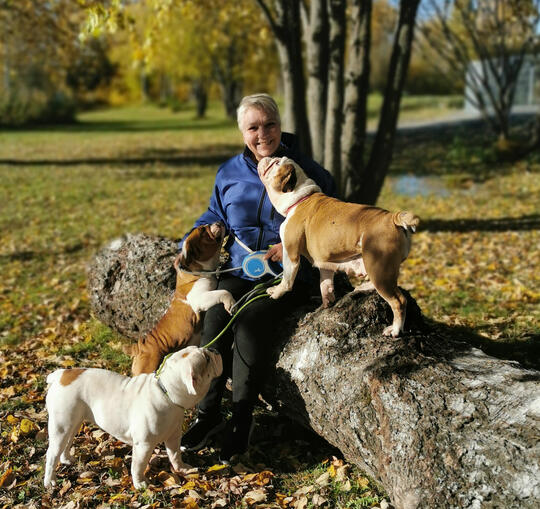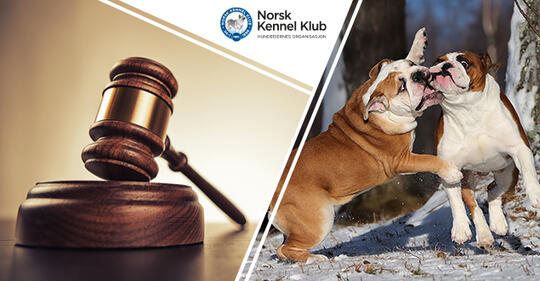The Norwegian Kennel Club appealed as a matter of principle

“This appeal to the Supreme Court is not a matter of ‘saving’ one particular breed, but of trying an important principle in the highest court of the land,” says Tom Øystein Martinsen, head of the NKK.
The executive board of the NKK, in consultation with their lawyer, carefully considered whether to lodge an appeal or not. Tom Martinsen stressed that the reason for the appeal was to establish the principle of who should administer the law: whether it is the courts or a professional body, in this instance the Norwegian Food Safety Authority.
We’ve been in touch with other organisations involved in animal breeding. They have encouraged us to appeal in order to clarify exactly where we stand, and who we can expect to have to deal with in the future. So this isn’t about one particular breed and whether it should still be bred, which is how it has been portrayed by some people. The judgement has much wider-ranging consequences than that, he says.
Tom Martinsen thought that there were indications in the judgement that the Court of Appeal had also seen the need for clarification by the Supreme Court.
“The case raises fundamental legal questions that have significance beyond the actual case itself. It is the first case related to section 25 of the Animal Welfare Act that has been tried by the courts, based on health conditions at the breed level, not on individual animals or groups of them. There are no clear indications in the law that the legislator has envisaged such a case. The grounds of the judgement also closely resemble a regulation, even though the case only affects the parties involved,” Tom Martinsen said.
Potentially, the case will be significant for all kinds of animals, not just dogs. If the judgement stands, it is likely that there will be more cases brought against dog breeds, but also against production animals like poultry and pigs. The Court of Appeal stated that the case has raised legal doubt regarding the significance of breed-related health conditions in breeding. This gives a clear signal to the Supreme Court that legal clarification is needed, he concludes.
Background facts:
- On 19 November, judgement was passed in the appeal hearing between the Norwegian Society for Protection of Animals and the Norwegian Kennel Club, two breed clubs and six breeders of Cavalier King Charles Spaniels and English Bulldogs.
- The Court of Appeal found that the breeding of Cavalier King Charles Spaniels is in violation of section 25 of the Animal Welfare Act, but that the breeding of English Bulldogs could continue.
- It also ruled that the breeding ban only concerned the three sued breeders, and that the NKK and the Norwegian Cavalier Club could not “facilitate” breeding.
- This means in practice that the breed can no longer be registered with the NKK, while anyone other than the three breeders can continue to breed Cavaliers without registering the puppies.
- The judgement is not legally enforceable until it is either rejected or heard by the Supreme Court.



